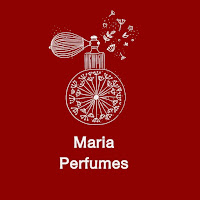Perfume has a rich history dating back to ancient civilizations such as Egypt, Mesopotamia and China, where it was used for religious ceremonies, beauty and medicinal purposes
Why was French perfume invented
The French have a long history of perfume-making that can be traced back to the 17th century when King Louis XV appointed a perfumer to the royal court. The art of perfume-making flourished in France due to the country's access to luxury ingredients such as jasmine, rose, and lavender. French perfumers also gained recognition for their innovative techniques in extracting and blending scents, and the French perfume industry grew to become a symbol of luxury and sophistication. Today, France remains one of the world's leading producers of high-quality perfumes and fragrances
History of perfumes in ancient civilizations
Perfumes have been used by human civilizations for thousands of years for various reasons, including religious rituals, personal hygiene, and beauty. Here is a brief history of perfumes in ancient civilizations
Ancient Egypt
Perfumes were an integral part of Egyptian culture and religion. Egyptians used perfumes for religious rituals, personal hygiene, and as an aphrodisiac. They made perfumes from natural ingredients such as myrrh, frankincense, cinnamon, and juniper. They also believed that perfumes had healing properties and used them to treat various ailments
Ancient Greece
The ancient Greeks were known for their love of perfumes. They used perfumes for personal hygiene, as well as for religious and social events. They used natural ingredients such as lavender, thyme, and rosemary to create their perfumes. They also believed that perfumes had medicinal properties
Ancient Rome
The Romans inherited their love of perfumes from the Greeks. They used perfumes for personal hygiene, as well as for religious and social events. They also used perfumes to mask body odor, which was a common problem in ancient times. The Romans used natural ingredients such as rose, violet, and jasmine to make their perfumes
Ancient India
Perfumes have been used in India since ancient times. The ancient Indian texts mention the use of perfumes for religious rituals and as a way to enhance one's personal aura. They used natural ingredients such as sandalwood, saffron, and jasmine to make their perfumes
Ancient China
Perfumes have been used in China for over 2,000 years. The ancient Chinese used perfumes for religious and medicinal purposes. They also used perfumes for personal hygiene and to improve their social status. They used natural ingredients such as camphor, musk, and agarwood to create their perfumes
The history of perfumes among the Arabs
The history of perfume is long and rich among Arab cultures. The following is a brief summary of the history of perfumes among the Arabs
Ancient Arabia
Perfumes were an integral part of the ancient Arabian culture, and were known for their production and trade in perfumes. Arabs used perfumes for personal hygiene, religious rituals, and social occasions. They also believed that perfumes had medicinal properties and used them to treat various ailments
Islamic Golden Age
During the Islamic Golden Age (8th and 13th centuries), the Arabs made great progress in the field of perfumery. They developed new techniques for extracting essential oils and began experimenting with different perfumes. They also created a new perfume by mixing different essential oils togethe
Andalusia
Andalusia, the Islamic state of Spain (8th-15th centuries), was a major center for perfumes. Arab perfumers in Andalusia created new perfumes and improved essential oil extraction techniques. They also wrote books on perfumery and shared their knowledge with other perfumers
Arabia
The Arabian Peninsula is famous for the production of agarwood, an aromatic wood used in perfumery. Oud has been used in Arabian perfumery for centuries and is highly valued for its unique scent. Arabs also use other natural ingredients like rose, jasmine, and musk to make their perfumes
The Modern Arab World
The Arab world is still known for its love of perfumes, and the production and trade of perfumes continues to be an important part of the economy. Today, Arab perfumers continue to create new perfumes and experiment with different ingredients. They also use modern technologies to extract essential oils and make synthetic perfumes
Perfumes have been an important part of Arabic culture for centuries. The Arabs made great contributions to the field of perfumes and created some of the most iconic perfumes in the world. Today, the Arab world remains a major center for perfume and continues to produce new and innovative perfumes
Is there an expiry date for perfumes
Yes, perfumes can expire over time. Most perfumes have a shelf life of around 3 to 5 years from the date of production, but this can vary depending on the specific ingredients and formulation. Over time, exposure to air, light, and heat can cause perfumes to degrade, change in scent, or lose their effectiveness. Proper storage and handling, such as keeping them in a cool, dark place and away from direct sunlight, can help extend their lifespan. It's also a good idea to periodically check the scent and consistency of older perfumes to ensure they haven't gone bad.
Conclusion
perfumes have a rich and fascinating history dating back to ancient civilizations such as Egypt, Mesopotamia, and China. Perfumes were used for a variety of purposes, from religious ceremonies to medicinal and beauty purposes. Over time, the art of perfume-making evolved, and the French became known for their innovative techniques and luxurious ingredients. Today, perfumes continue to be an important part of many cultures and are widely enjoyed around the world






Comments
Post a Comment